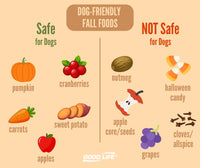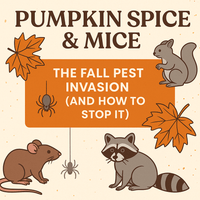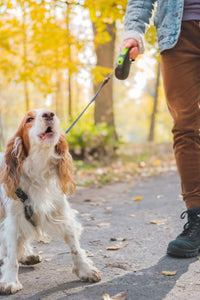Subtotal
CAD $0.00
or
When the holidays roll around, it’s tempting to share your Thanksgiving feast with your furry best friend. After all, what harm could a little turkey do? Unfortunately, while turkey might seem like a healthy source of protein, it can actually cause a range of issues for dogs. especially when it’s cooked and seasoned for human meals.
Here’s what you should know before you slip your pup a piece from your plate.
Most turkey dishes are seasoned with garlic, onions, butter, salt, and herbs — all of which can be toxic or irritating to dogs. Garlic and onion, in particular, can damage a dog’s red blood cells and lead to anemia.
The skin may be flavorful for humans, but it’s loaded with fat and oils that can cause pancreatitis — a painful, serious inflammation of the pancreas. Even small amounts of fatty food can trigger digestive upset in dogs.
Cooked turkey bones splinter easily. These sharp fragments can cause choking, intestinal blockages, or internal injuries that may require emergency surgery. Even “just one small bone” is a risky gamble.
Avoid giving your dog deli meat, turkey bacon, or processed turkey slices. These are often high in sodium and preservatives like nitrates, which can stress your dog’s kidneys and heart.
If you really want to share a bite of turkey with your dog, here’s how to do it safely:
Only serve plain, cooked turkey breast (no skin, bones, oil, or seasoning).
Avoid gravy or stuffing — both contain ingredients harmful to dogs.
Keep portions small. Even healthy foods can cause stomach upset if overfed.
Remember, every dog is different. Some may have food sensitivities or allergies that make turkey a bad choice even when plain.
Instead of turkey scraps, give your dog treats made specifically for them. Look for high-protein, single-ingredient snacks like:
Freeze-dried chicken or salmon treats
Carrot or apple slices (no seeds or cores)
Peanut butter (xylitol-free)
These options satisfy your dog’s cravings without putting their health at risk.
Sharing is caring — but when it comes to holiday meals, your pup is better off sticking to dog-safe snacks. Keeping turkey off their plate can help avoid upset stomachs, emergency vet visits, and unnecessary stress for you both.
If your dog does manage to sneak a bite of turkey and starts showing signs like vomiting, diarrhea, or lethargy, contact your vet right away.

Fall-Friendly Foods for Dogs: What They Can (and Can't) Eat This Holiday Season

Traveling with your dog doesn’t have to mean constant barking or stress. With preparation, consistency, and the right tools, you can make the season memorable for all the right reasons.

Fall might be the season of pumpkin spice and cozy nights, but it's also prime time for pests to sneak into your home. As temperatures drop, mice, squirrels, raccoons, and spiders go into survival mode. From scratching in the walls to overturned trash cans, these freeloading critters can cause big headaches if you don't stop them early.

Fall is one of the busiest seasons for wildlife — and that often means more barking from your dog. From squirrels and raccoons to deer in the backyard, autumn critters can stir up a lot of noise and stress. Discover simple, humane solutions to keep pests away and calm the barking so you can enjoy a quieter, cozier season.

September is here—and with it comes new challenges from pests trying to sneak into your home and garden. Discover simple, humane solutions to keep critters out and your space pest-free all season long!